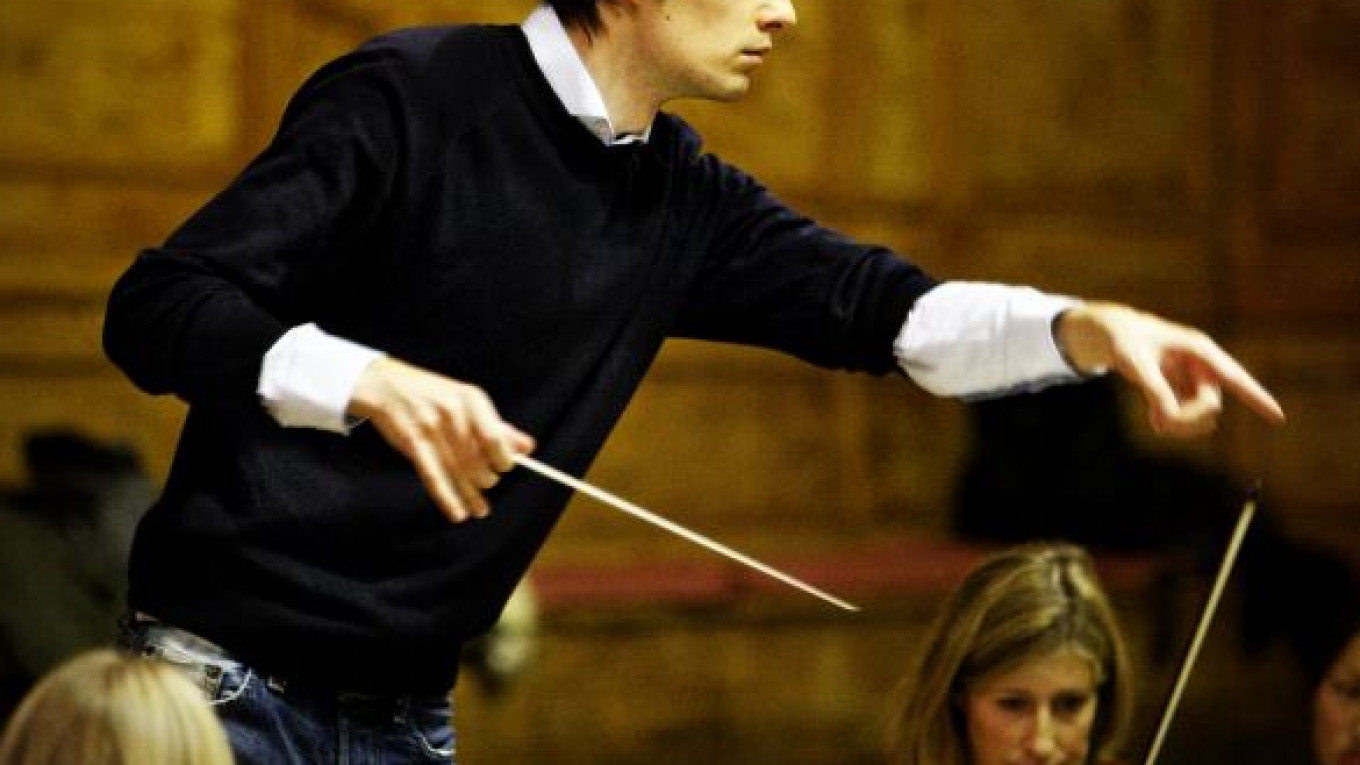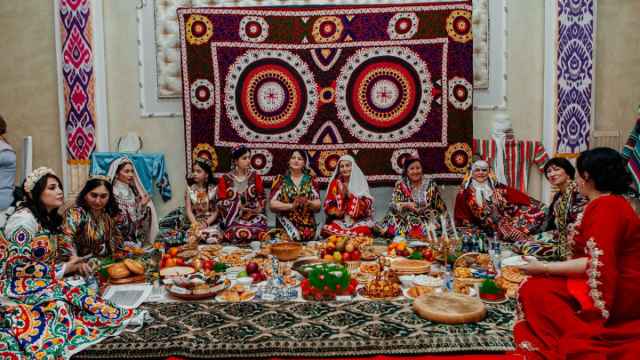British-Russian conductor Marius Stravinsky has taken a circuitous route to take the baton at one of Moscow's premier classical venues via British private school Eton, Karelia and his childhood home in Kazakhstan.
Born to Russian pianists in Almaty, Stravinsky first followed his parents to Vilnius and then to Moscow to start school and take up the violin.
After a stint at the prestigious Yehudi Menuhin school in England, set up by the famous violinist, he went on to the British boarding school Eton College, where he was the first former Soviet student to receive a music scholarship.
"Gorbachev's perestroika made this all possible. The restrictions were lifted, especially for artists," Stravinsky said in an interview. "Even today, I still remember the date I arrived in England — June 6, 1989."
Stravinsky, 33, describes his first years at Eton as a whirl, with so many commitments that there wasn't a moment to stop and think about how far he had come or how his schoolmates perceived him.
"At the time, my English was still not perfect. I think the boys thought I was a bit odd, at first," he said, adding that he continues to be seen differently by his colleagues, with some seeing him as British and others Russian.
Despite describing his situation as like being stuck in "no man's land," Stravinsky says that he's proud to be British.
"This is a nation that has offered me my education, a place to live, grow and realize myself. But I think I will always understand Russia a little better than most people because of my family roots," he said.
After starting out conducting by assembling fellow musicians and "just waving my arms," Stravinsky quickly developed an affinity for the conductor's baton.
But it was not until he finished studies as a violinist at London's Royal Academy that he made the switch to conducting full time.
"The violin was and is very important and special to me. Actually making music differs to conducting, and I miss this immensely," Stravinsky said.
In 2002, when Stravinsky's teacher, Vladimir Ponkin, offered him a position as assistant conductor at the Moscow State Symphony Orchestra, the young musician leapt at the chance to realize his ambitions.
Stravinsky now recognizes that he landed in Moscow at an opportune moment, as his first posting coincided with improving conditions for local musicians.
"In Moscow alone, you can hear half a dozen very good orchestras. Not many European cities can match that. Even Berlin does not have so much choice," Stravinsky said.
Nevertheless, in 2007 he headed to Karelia on the border with Finland to become the chief conductor of the republic's philharmonic after a spell with the Helikon Opera.
It was in Karelia that Stravinsky began to build his career, reworking the orchestra's repertoire and leading it on tours to European countries including Finland, Switzerland and France while guest conducting at venues across Russia.
When Stravinsky announced in July that he would be leaving the Petrozavodsk-based orchestra, local Governor Alexander Khudilainen personally met with him to thank him for his work.
Based in Moscow once more, Stravinsky is now preparing to conduct the Russian National Orchestra at Moscow's Tchaikovsky Concert Hall on Sept. 20, where he will conduct a pair of works by his famous namesake, 20th-century composer Igor Stravinsky, a distant relation whose blood ties the conductor prefers not to overstress.
"I'm only linked to the famous composer at some point in the 18th century. But it's better that way, it's easier for me to make a name for myself on my own," he said.
For the September show, Stravinsky has chosen "Solovei" (The Nightingale) and "Petrushka," pieces the conductor said "remain fresh, original, hard to decipher and rhythmically astute even 100 years after they were written."
Stravinsky is now increasingly in demand, with shows booked in Germany, Japan and Britain after the end of the Moscow RNO festival.
"My aim is just to make music with musicians who see things the way I do and to enjoy playing for the sake of it," he said.
RNO Grand Festival 2012, Sept. 20 at 7 p.m. Tchaikovsky Concert Hall, 4/31 Triumfalnaya Ploshchad. Metro Mayakovskaya. Tel. 8 (495) 299-3957.
Related articles:
A Message from The Moscow Times:
Dear readers,
We are facing unprecedented challenges. Russia's Prosecutor General's Office has designated The Moscow Times as an "undesirable" organization, criminalizing our work and putting our staff at risk of prosecution. This follows our earlier unjust labeling as a "foreign agent."
These actions are direct attempts to silence independent journalism in Russia. The authorities claim our work "discredits the decisions of the Russian leadership." We see things differently: we strive to provide accurate, unbiased reporting on Russia.
We, the journalists of The Moscow Times, refuse to be silenced. But to continue our work, we need your help.
Your support, no matter how small, makes a world of difference. If you can, please support us monthly starting from just $2. It's quick to set up, and every contribution makes a significant impact.
By supporting The Moscow Times, you're defending open, independent journalism in the face of repression. Thank you for standing with us.
Remind me later.






